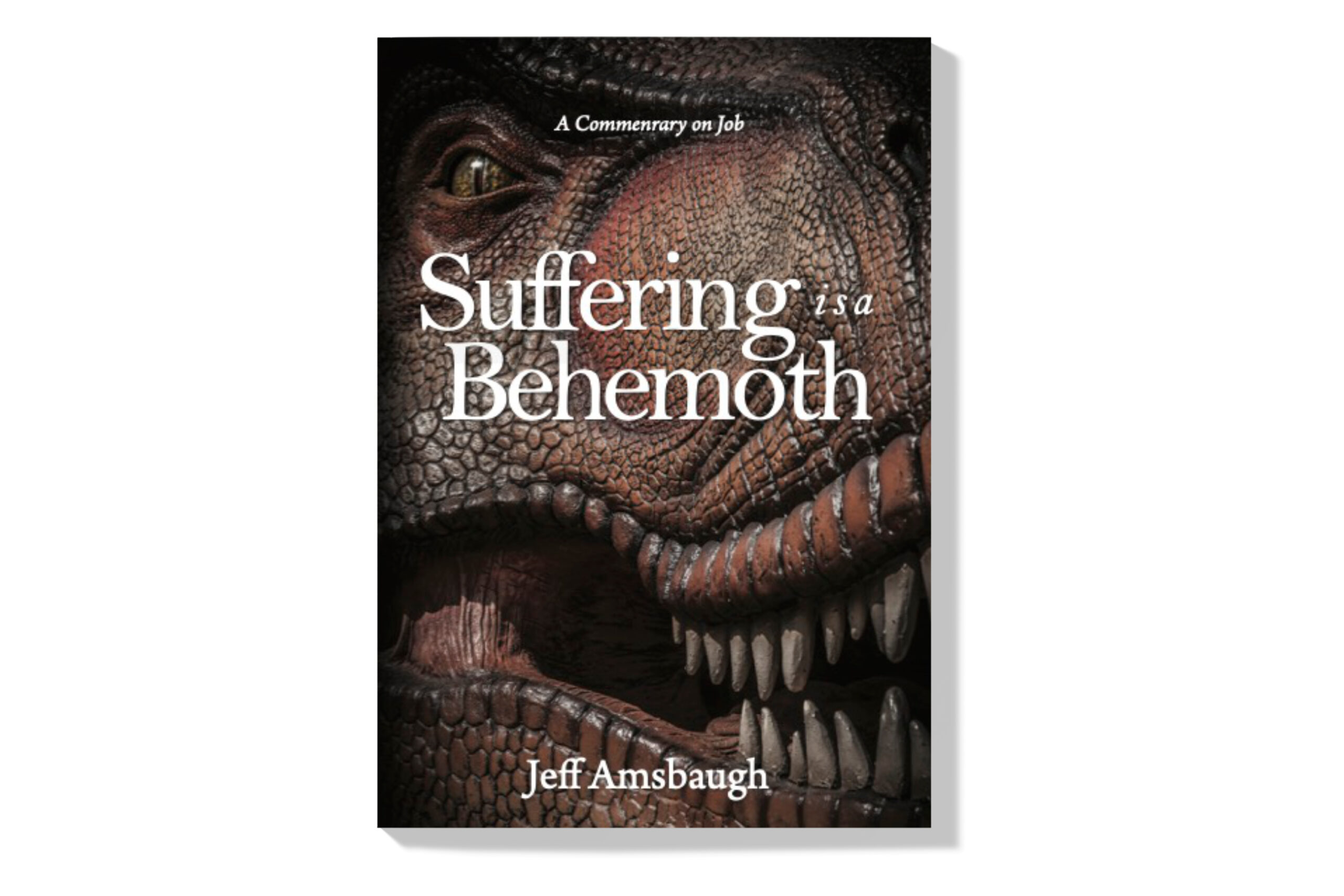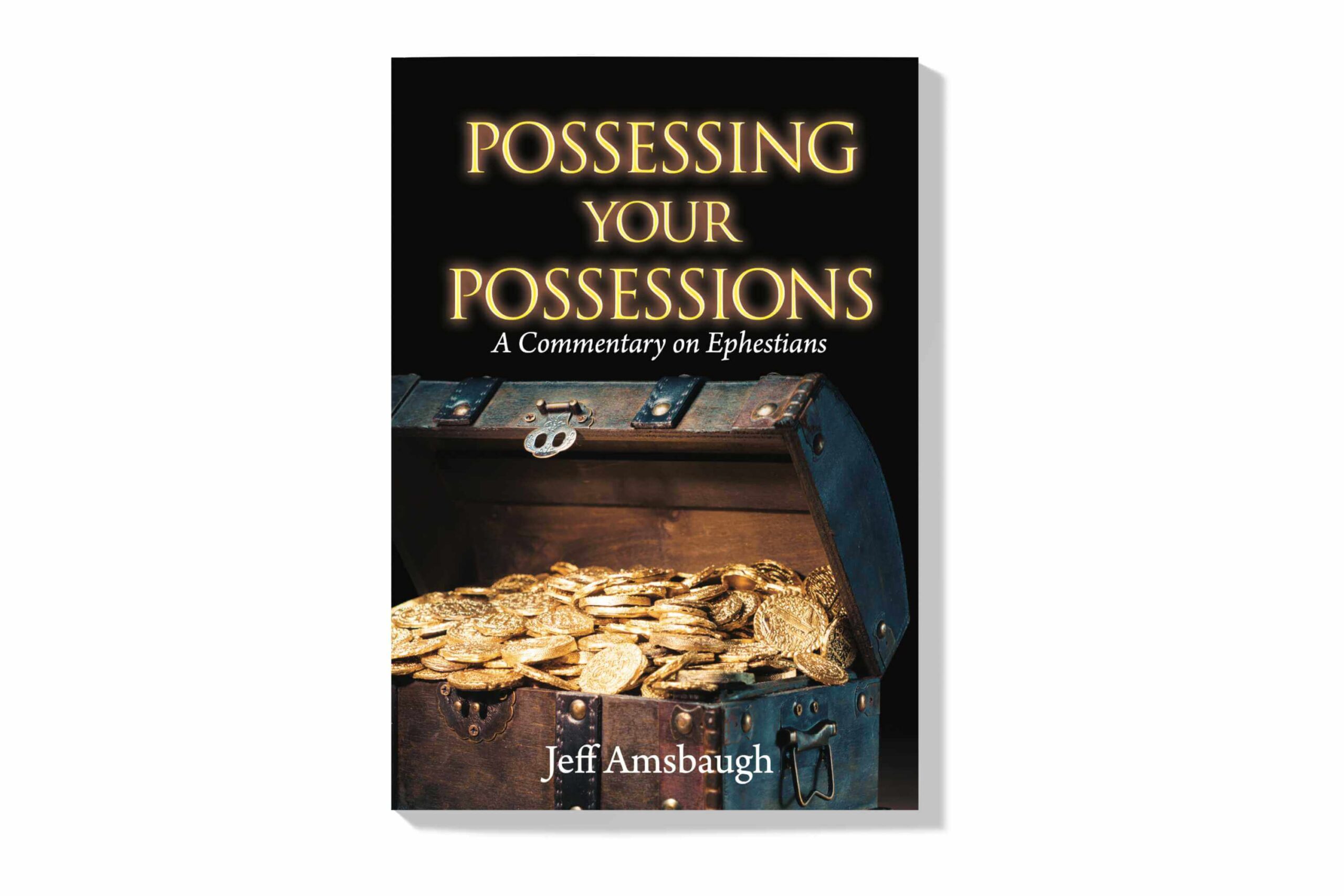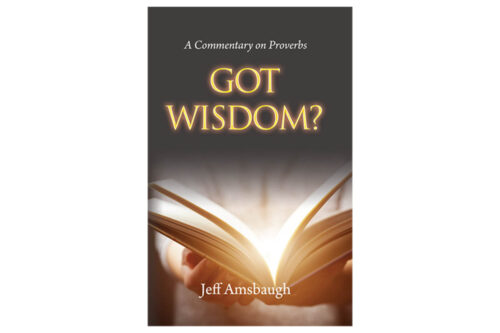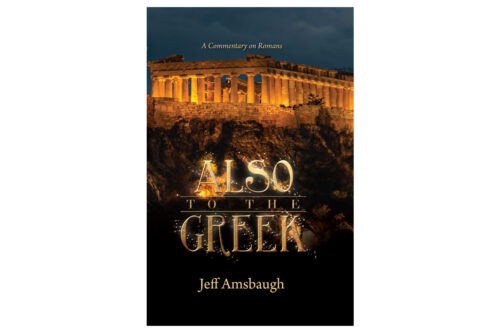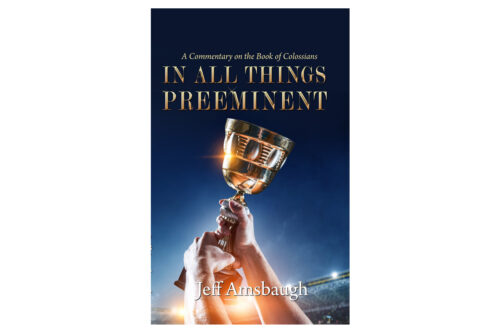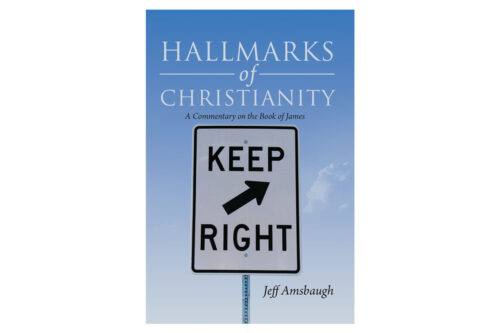-
Though there are many different interpretations to the book of the Revelation, and good men disagree about minor points of exegesis, the thrust of the book is obvious. It is the Revelation of Jesus Christ. The book is about Jesus and how He emerges victorious over Satanic and despotic government. And because believers are affiliated with Jesus, they too are winners. No matter how much tribulation we have in this world, we can be of good cheer, for Christ has overcome the world. In the end, the saints win. We trust that as a result of this study of Revelation, you will rest and rejoice in the victory that is yours through Jesus Christ our Lord.
-
God comforts us so that we can comfort other people. No one knew this better than the Apostle Paul. When he left Corinth, his motives were questioned, and this prepared the way for an awkward visit upon his return. He thus writes to the Corinthian church in order to clear the air before his arrival. In addition, the Corinthian discipline of an erring brother had bordered on excessive, and this also was creating a strain on personal relationships on a variety of fronts. Thus, Paul writes to the Corinthian church about the necessity of using one’s influence to comfort others. The Christian community always functions better under comfortable relationships, and we trust that as a result of this study of Paul’s second letter to the church at Corinth, you will feel comfortable being a comforting believer.
-
Esther lived in a materialistic society that was filled with antisemitic people who thought more of their personal advancement than the people of God who lived among them. In a day when women were treated as property, and Jews were thought worthy of extermination, God brought Esther to the throne for such a time as this. Through the help of Mordecai, the prayers of her fellow Israelites, and more importantly, through the invisible, providential hand of God, the tables were completely turned, and the Jews were protected while their enemies were destroyed. Thus, the book of Esther highlights the miraculous, protective intervention of God. Though the Lord is never mentioned in the book, He is present on every page. God is often most involved when His presence is not seen. The God of Esther can also help us in uncertain times by manifesting His presence through the lives of obscure volunteers for such a time as this.
-
Job’s belief in the sovereignty of God did not allow him the luxury of attributing his successive and severe calamities to secondary sources. It never occurred to him to blame natural disasters, human agents, or even the devil for his suffering. The Lord had given, and the Lord had taken away. Why did God grant the devil permission to afflict Job so severely seeing Job lived so righteously? Job seeks answers, and those provided by his friends are wholly inadequate. When God finally arrives on the scene, He does so, not to answer questions, but to question answers. For example, God asks Job, “Where were you when I made behemoth?” The behemoth, a massive land animal, serves no apparent reason for existence. And if a man tries to get ahold of it in order to analyze it, he only ends up injuring himself. The point is that suffering is a behemoth. We often don’t know why God allows it, and if we attempt to understand it more fully, we only end up injuring ourselves. We trust that this commentary will assist you in trusting God even when His ways are inexplicable.
-
Jeremiah was nearly twenty years old when he began his ministry in 627 BC and immediately began to address a nation that was rapidly approaching the judgment of God. Because Jeremiah prophesied in the final years of Judah before the Babylonian exile, his overwhelming theme is judgment. Indeed, the first forty-five chapters of the book focus on God’s judgment of Judah. Ironical- ly, however, there is an element of grace throughout the book, and significantly, Jeremiah’s prophesy provides the most vivid treatment of the New Covenant whereby God will remember Judah’s sins and iniquities no more. Indeed, God was pulling down in order to build. We trust that this commentary on Jeremiah will help you accept the grace of God even when life is falling apart.
-
God promised Joshua that the entire land of Canaan was available, but he and the Israelites must go forward and possess their possessions. Sadly, in the New Testament era, Christians many times allow the promises of God to be nothing more than unclaimed freight. Paul, in the book of Ephesians, outlines for us the glorious inheritance that we have in Christ and then encourages us to advance and claim it. May this study in Ephesians incentivize you to possess your possessions.
-
Many have seen a parallel between the five books of the Psalter and the five books of the Pentateuch. Indeed, the first book of the Psalter (Psalms 1-41), which mirrors the book of Genesis, speaks graphi- cally of the heavens that declare the glory of God and also of man’s ruination of the created environ- ment through his fall into sin. Many hymns, such as “How Great Thou Art,” speak of God’s excellence that can be observed in the created order. This is very much in keeping with God’s inspired hymn- book where you and I are invited to sing about the mighty power of God.
-
Many believe that the book of Ecclesiastes is a pessimistic discourse, but it is truly a powerful apologetic for a God-honoring life. After Solomon tries everything without God, he is left with nothing but vanity. Such is the always the case when life is lived under the sun. No matter how attractive the hedonistic life may appear, such pursuits are a mere chasing of the wind – the acquisition of soap bubbles. When Solomon, however, fears God and keeps His commandments, wholeness returns. Hopefully this study of Ecclesiastes will encourage you to live a substantive life of dedication to God rather than a hollow existence of soap bubbles without Him.
-
Many people love proverbs from whatever the source because they provide memorable advice in a short, pithy fashion. The book of Proverbs in Scripture, however, is not just good advice from wise people; it is infallible advice from the all-wise God. Proverbs provide the instruction that is necessary to live life wisely and godly. Numerous leaders have found success by reading, studying, and applying the truths from this book of the Bible. What about you? Got Wisdom? We trust that as a result of studying the Proverbs through this commentary you will become a wise guy in the best sense of that term.
-
Many believe that the major theme of Romans is justification by faith. This assumption, however, does not provide an occasion for the letter, forces the climax of Romans to be reached in chapter four, and diminishes chapters nine through eleven to a mere parenthesis in the epistle. While it is true that justification is by faith alone, Paul presents this truth as part of something bigger. All men are equally condemned, justified, sanctified, planned, and needed. Therefore, all men should be received regardless of their cultural, social, or economic background. Indeed, the Gospel has ramifications. It is not merely for the Jew. It is also for the Greek.
-
Often we feel that a powerful apologetic is necessary to confront false religions and that courses in comparative religion are vital to evangelizing those from different faiths. When Paul, however, sought to rescue the Colossians from the Gnostic heresy that was pervading their town, he simply chose to exalt Christ. When Jesus is seen in all His glory, other faiths of necessity fade into the background. No competing system of thought can adequately replace the splendor of Jesus. Nothing can trump Christianity when Christ is in all things preeminent. We trust that this study of Colossians will help you see Jesus in all of His magnificence.
-
Because many have recoiled from the fact that God would write a book about human sexuality, the Song of Solomon has often been allegorized as a book written to describe Christ’s love for the church. Does this mean that the book had to lay dormant for 900 years until the church was birthed? And how are we to explain God using Solomon, one of the worst husbands in history, to typify God’s love? Why is it that many who abhor allegorical interpretation are willing to accept it with regard to this Biblical work? In this commentary, we will discover that the Song needs no alteration or “deeper significance” to justify its place in the canon. To the contrary, this book will defend the fact that the proper use of human sexuality can turn a shepherd into a prince while its misuse can turn the world’s most celebrated sovereign into a beast. Indeed, God wrote the book of love.
-
Isaiah ends his great prophecy by telling us about a new heaven and new earth. He does not leave us in the dark, however, about how this new universe will come to be. The entire focus of the book is on the Messiah, Jesus Christ. The prophet tells us of Christ’s birth, Christ’s cross, and Christ’s return. Jesus is the Servant of the Lord who accomplishes the very salvation of God. Indeed, He is God’s salvation. And it is no halfway salvation. It is salvation that helps us in this life and in the life to come. Those who embrace Christ are saved to the uttermost. We trust that you will arrive at a greater appreciation of this great salvation through this study of Isaiah
-
Life is filled with dreams. Someone has once said that we will never accomplish more than we are willing to dream. There is no denying that Daniel was a dreamer and was interested in helping fulfill the dreams of others. This commentary takes you through the historical and prophetic sections of Daniel, a significant Old Testament work. It is our hope that as a result of this study you will not be afraid to dream the impossible and trust God for the unforeseeable. No true student of eschatology can rightly understand the future without a working knowledge of the book of Daniel. It is our prayer that this commentary will aid your prophetic understanding of God’s Word.
-
If you have been saved for any length of time, you have probably seen some rift over Calvinism. Perhaps you feel uncomfortable believing that your lost relatives are unsaved because somehow God has not chosen them to salvation. That all having been said, however, you are not quite sure how this fits with the election passages of the Bible. In The Great Rift, Jeff Amsbaugh explores the roots of Calvinism and attempts to explain the five points of Calvin in light of God’s Word in order to help you the next time a rift over Calvinism comes your way.
-
The modern-day church is becoming increasingly weak in its doctrine. Teaching doctrine is not favorable and practicing doctrine is not popular. In fact, many churches have decided to abandon doctrine altogether because of its divisive nature. Today’s Christian must be properly equipped with Biblical doctrine to combat the heresies that dominate modern thought. Every Christian must know what they believe about core truths and why they believe them. This commentary trains you to be a heresy hunter. You will learn how to recognize the subtle differences in false teaching and how to avoid being trapped in unscriptural error.
-
We often think that trials are inappropriate for the Christian, and therefore we respond with bitterness and retaliation when they come. The Bible is clear, however, that trials are not foreign to the Christian life but a necessary component of it. Therefore, trials should not only be embraced but enlisted to serve God more effectively. This commentary explores the book of I Peter and develops concepts to help you submit the next time your Christian life is under fire.
-
When a person accepts Jesus Christ as his personal Saviour, he is immediately justified in the eyes of God. But how is a person justified in the eyes of men? This commentary takes you through the book of James and explains the defining hallmarks of Christianity. Here you will find practical tips on how to stay right in a world that is constantly drifting left.
-
We live in a world that invites comparisons. We compare restaurants, cars, and even churches. Some seminaries even offer courses in comparative religions. One famous apologist said that “all religions are essentially the same. They just differ over minor issues such as sin, salvation, heaven, and hell.” The author of the book of Hebrews goes to great lengths to prove that Jesus is better than anything religion can offer. Join us in this study of Hebrews to find out why Jesus is “better by far.”
-
At times, we all feel like running away. Unfortunately, when we run away from our problems, we often create more. Thankfully, God positions Himself so that when we run from Him, we often run into Him. Such was the case with Onesimus. While on the run, he ran into God, and his life was forever changed. Discover how his master, Philemon, took him back and in so doing mirrors Christ who takes us back when we run away from Him.
-
All too often, pastoral candidates are merely asked to preach a couple of sermons to a local assembly before the vote is taken to call them to lead a church. Indeed, we often refer to our pastors as “preachers.” But is there more to pastoral leadership than pulpit communication? What does God require of the man who would shepherd the flock? This commentary explores the books of I Timothy, II Timothy, and Titus to discover God’s plan for pastoral ministry.
-
In previous ages, Christians lived in great anticipation of the Lord’s return. A belief in the imminent rapture of the church led many Christians to embrace holy living and aggressive evangelism. Times, however, have changed. Now, anyone who speaks of the Lord’s return is viewed as being on the same level as someone who claims to have seen Elvis in Burger King. Prophecy is seldom preached, and when it is, the preacher is viewed as a kook. The New Testament in general, and the books of I and II Thessalonians in particular, repeatedly emphasize, however, the fact that the King is coming. Our hope is that the pages of this commentary will help you live in light of that day.
-
The hallmark of orthodox Christianity is justification by faith. The thing that separates Christianity from every other religion is the fact that men are counted righteous before God by faith in the work of Christ independent of human merit. After we are saved, however, we sometimes feel that we must work for the smile of God. We believe that we are justified by faith but sanctified by works. Paul uses no other word but “foolish” to describe this mentality. In this commentary, you will learn that growth in the Christian life is accomplished by the same means as entrance into the Christian life - by grace through faith.
-
The children of Israel had returned from Babylonian captivity and were eagerly anticipating great things from the Lord. They had returned to their homeland and had rebuilt their temple. Fifty years later, however, expectations were very low. Joshua and Zerubbabel had both died. The glory of the Lord had not filled the temple as Ezekiel said it would. And the day of miracles had passed with Elijah and Elisha. This was an apathetic age, an uneventful waiting period. Malachi writes to his fellow Jews to give them cures for apathy. This commentary explores those cures and presents them as hope for our current apathetic age.




